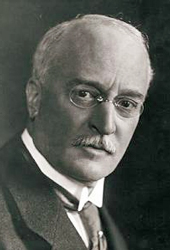 Alstom has signed two contracts with Danish power plant specialist Burmeister & Wain Scandinavian Contractor (BWSC) for Geared Reaction steam turbines (GRT) to be used in two UK biomass projects. The first contract uses a 23MW GRT for a waste wood combined heat and power (CHP) biomass plant in Widnes, Merseyside that is being developed by BWSC and UK logistics company Stobart Group. While the second is a 50MW GRT for the Snetterton Biomass Plant, in East Anglia, which will burn energy crops such as straw, cereals and oilseed rape.
Alstom has signed two contracts with Danish power plant specialist Burmeister & Wain Scandinavian Contractor (BWSC) for Geared Reaction steam turbines (GRT) to be used in two UK biomass projects. The first contract uses a 23MW GRT for a waste wood combined heat and power (CHP) biomass plant in Widnes, Merseyside that is being developed by BWSC and UK logistics company Stobart Group. While the second is a 50MW GRT for the Snetterton Biomass Plant, in East Anglia, which will burn energy crops such as straw, cereals and oilseed rape.- A new solar report from GTM Research provides an in-depth look at the changing inverter market landscape, including coverage of new technologies, grid integration, solar-plus-storage, module-level power electronics, market drivers and pricing, and region-specific inverter markets. It details the current global and regional competitive landscape and contains comprehensive profiles and analysis of 45 leading manufacturers.
- Justin DeAngelis from the energy and resources focused global private equity firm Denham Capital recently wrote a detailed white paper looking at the economic benefits of renewable power in Africa, which featured in Clean Energy Pipeline’s Clean Energy Africa Finance Guide. Download the free white paper here.
- Global expenditure for wind turbine Operations and Maintenance (O&M) will rise from $9.25 billion in 2014 to an estimated $17 billion by 2020, driven by increasing numbers of installations and aging turbines, according to research and consulting firm GlobalData. “Global Wind Turbine Operations & Maintenance Market, Update 2015 – Market Size, Major Contenders, Trends, and Analysis to 2020,” states that on average, offshore O&M is two to four times more expensive than onshore O&M. Offshore wind power accounted for about 2.4% of the world’s cumulative wind power capacity in 2014, but accounts for approximately 10% of the global wind O&M market.
Offshore Wind Tech Being Tested
China Ming Yang Wind Power Group Limited’s super compact drive (“SCD”) offshore wind turbine prototype of 6.5MW platform has begun a commercial trial operation in Rudong,Jiangsu Province, China. The 5 -7 MW wind turbine prototype features a two-blade design with a light weight permanent magnet generator and is able to adapt to various extreme offshore weather conditions, offering high reliability at a lower weight to offshore wind farm operators, particularly in typhoon-prone regions.
 “We are proud to see that the world’s first SCD offshore wind turbine prototype of 6.5MW platform has beenconnected to the grid and put into trial operation,” said Chuanwei Zhang, Chairman and Chief Executive Officer of Ming Yang. “Our unique model provides our customers with a cost-effective solution for their offshore wind farm projects in typhoon-prone coastal areas where extreme weather conditions prevail, for example the eastern and southern coast of China, potentially one of the world’s largest offshore markets.”
“We are proud to see that the world’s first SCD offshore wind turbine prototype of 6.5MW platform has beenconnected to the grid and put into trial operation,” said Chuanwei Zhang, Chairman and Chief Executive Officer of Ming Yang. “Our unique model provides our customers with a cost-effective solution for their offshore wind farm projects in typhoon-prone coastal areas where extreme weather conditions prevail, for example the eastern and southern coast of China, potentially one of the world’s largest offshore markets.”
Zhang added, “Meanwhile, I am also pleased to announce that in response to our customers needs and to meet China’s complex offshore conditions, Ming Yang is planning to develop an innovative three-blade SCD wind turbine model, specializing in catching low speed wind. We expect that we will be able to seize the huge market opportunities by providing a wider product mix as well as value-added services, as the PRC government continues to push for renewable energy solutions in an effort to combat air pollution.”
Emerging Issues Forum Features Biz Issues & Trends
The 10th annual Ethanol 2015: Emerging Issues Forum is set for April 16-17, 2015 in Omaha, Nebraska hosted by the Nebraska Ethanol Board (NEB). The event is designed for ethanol producers and others integrally involved in production, technology, policymaking and marketing of ethanol and its co-products.
NEB has announced that Paul Argyropoulos, senior policy advisor to the Office of Air Quality and Transportation at the Environmental Protection Agency (EPA), will be the featured speaker April 16th. Argyropoulos will address EPA’s plans for the final rule on  Renewable Fuel Standard (RFS) volumes for 2014 and plans for 2015 and 2016. In addition, he will address issues associated with the RFS including steps EPA is taking to get the RFS back on track.
Renewable Fuel Standard (RFS) volumes for 2014 and plans for 2015 and 2016. In addition, he will address issues associated with the RFS including steps EPA is taking to get the RFS back on track.
“Paul is as knowledgeable as they come on these issues and we are absolutely delighted that he will be able to join us this year,” said Todd Sneller, NEB administrator. “He has worked on fuel and air quality programs for more than 20 years and with new ozone standards, the Tier 3 program and fuel economy standards all impacting the future of ethanol. It is a very timely addition to the program.”
Other topics during the forum include ethanol marketing challenges; domestic and international ethanol marketing opportunities and barriers; emerging trends in ethanol co-products; low carbon fuel standards; and integrating technology for efficiency, profitability and sustainability.
Ethanol Featured on Bobby Likis Car Clinic
 Some straight talk this weekend on ethanol on the syndicated car-talk program “Bobby Likis Car Clinic.” Judd Hulting of Patriot Renewable Fuels talked with Bobby about the operations, products and statistics of Patriot’s ten-year old, ethanol plant located near the Quad Cities.
Some straight talk this weekend on ethanol on the syndicated car-talk program “Bobby Likis Car Clinic.” Judd Hulting of Patriot Renewable Fuels talked with Bobby about the operations, products and statistics of Patriot’s ten-year old, ethanol plant located near the Quad Cities.
 Hulting was able to tout the benefits of ethanol, including the growing worldwide export market for American-made ethanol and distillers grain. Likis was already a fan of ethanol and pointed out that while some Americans are worried about moving up to a 15 percent ethanol blend (E15), Brazil has just moved up to E27 as the baseline for gasoline in the South American country.
Hulting was able to tout the benefits of ethanol, including the growing worldwide export market for American-made ethanol and distillers grain. Likis was already a fan of ethanol and pointed out that while some Americans are worried about moving up to a 15 percent ethanol blend (E15), Brazil has just moved up to E27 as the baseline for gasoline in the South American country.
You can listen to the conversation between Hulting and Likis here.
Happy National Biodiesel Day!
 Today we celebrate National Biodiesel Day, the anniversary of Rudolf Diesel’s birthday in 1858. The pioneer of his namesake diesel engine, Diesel designed it to run on a biofuel, peanut oil. The National Biodiesel Board (NBB) reminds us that on this special day, we can do more than just fill up our tanks with clean-burning biodiesel (although that is a good start).
Today we celebrate National Biodiesel Day, the anniversary of Rudolf Diesel’s birthday in 1858. The pioneer of his namesake diesel engine, Diesel designed it to run on a biofuel, peanut oil. The National Biodiesel Board (NBB) reminds us that on this special day, we can do more than just fill up our tanks with clean-burning biodiesel (although that is a good start).
Those who want to do more to support the advanced biofuel can. It is as easy as joining the Biodiesel Alliance. Alliance members range from farmers to fleet managers, and from trade organizations to municipal agencies and local businesses. Biodiesel Alliance members have easy access to news and information about biodiesel and related topics. Sign up is free and a click away.
“Biodiesel works behinds the scenes to deliver a better alternative. It is here now, working today across the country to improve our environment, support our economy and protect energy security,” said Steven J. Levy, Chairman for the National Biodiesel Board. “It is impressive what we have achieved in ten years and clear that responsible policy and industry innovation is working to expand access to America’s Advanced Biofuel while benefitting consumers.”
NBB also reminds us just how much of an economic powerhouse biodiesel is, with diesel engines moving approximately 90 percent of the America’s goods. And biodiesel provided nearly 1.8 billion gallons of a cleaner burning alternative to petroleum diesel.
Record Amount of E85 Ethanol Sold in Iowa
 The high blend of ethanol, E85, had a big year in Iowa last year. The Iowa Renewable Fuels Association (IRFA) says a new record of nearly 12 million gallons was sold in the Hawkeye State in 2014, more than a million-gallon increase over 2013.
The high blend of ethanol, E85, had a big year in Iowa last year. The Iowa Renewable Fuels Association (IRFA) says a new record of nearly 12 million gallons was sold in the Hawkeye State in 2014, more than a million-gallon increase over 2013.
“Another year, and another E85 sales record in Iowa,” stated IRFA Executive Director Monte Shaw. “The most impressive aspect of this record is that retail gasoline prices dropped significantly in the second half of the fourth quarter of 2014, yet Iowa motorists remained committed to the homegrown, cleaner-burning fuel by setting a new fourth quarter record for E85 purchases. This fourth quarter data proves that not only is E85 being purchased at a record rate where available in Iowa, but consumers are realizing the benefits of this more locally-produced, environmentally-friendly fuel, beyond simply its cost advantages.”
The nearly 3 million gallons sold in the fourth quarter of 2014 was also a fourth quarter record.
BioEnergy Bytes
 According to a recent report from Navigant Research, 59 percent of light-duty vehicles purchased in 2025 are expected to feature turbochargers. “Automotive Fuel Efficiency Technologies,” analyzes the emerging global market for technologies that improve fuel economy. It examines the consumer demand and regulatory background related to engine technology and lightweight materials for increasing fuel efficiency in vehicles. Global market forecasts for LDV sales, segmented by powertrain, region, and number of cylinders, extend through 2025.
According to a recent report from Navigant Research, 59 percent of light-duty vehicles purchased in 2025 are expected to feature turbochargers. “Automotive Fuel Efficiency Technologies,” analyzes the emerging global market for technologies that improve fuel economy. It examines the consumer demand and regulatory background related to engine technology and lightweight materials for increasing fuel efficiency in vehicles. Global market forecasts for LDV sales, segmented by powertrain, region, and number of cylinders, extend through 2025.- Coronal Group LLC, an alternative energy firm that finances and operates solar photovoltaic (PV) projects, has announced that Jonathan D. Jaffrey will step into the role of chairman and CEO and that Edwin Feo will assume the position of president. In addition, the company added two executives, Joseph M. Teltser, deputy general counsel, and Dan Barahona, controller.
- Solar Power, Inc. has announced that SPI, together with its wholly owned subsidiary, SPI China (HK) Limited, has completed its previously announced acquisition of 4.3 MW of photovoltaic projects in Italy from CECEP Solar Energy Hong Kong Co., Limited.
- There is still time to register for the 10th Annual Emerging Issues Forum taking place April 16-17, 2015 in Omaha, Nebraska. Hear the latest confirmed speaker, Paul Argyropoulos with the U.S. Environmental Protection Agency (EPA) speaking about “Getting the Renewable Fuel Standard Back on Track” as well as others on various ethanol topics. Register here.
Celebrate National Biodiesel Day
 National Biodiesel Day is March 18, and the Iowa Biodiesel Board is suggesting that farmers ask for and use biodiesel as they head into spring planting.
National Biodiesel Day is March 18, and the Iowa Biodiesel Board is suggesting that farmers ask for and use biodiesel as they head into spring planting.
“We’re challenging every farmer in Iowa to request that their fuel distributor offer biodiesel blends this spring,” said Grant Kimberley, IBB executive director and a soybean farmer who uses biodiesel on his farm. “A thriving biodiesel market helps everyone in the ag sector.”
March 18 is National Biodiesel Day because it is the birthday of Rudolf Diesel, the man who invented the engine that bears his name. He ran early models on peanut oil, and was a visionary for renewable fuel.
“I urge farmers to recognize the importance that renewable energy has in a strong and vibrant farming future,” said Ron Heck, an Iowa soybean farmer and IBB officer. “Those of us in the farming community must walk-the-walk by supporting clean energy solutions on the farm.”
Heck noted he has used biodiesel on his own farm for many years. But a poll of more than 360 Iowa farmers conducted this winter by the Iowa Soybean Association finds room for increased biodiesel use. About 41 percent said they use biodiesel in their farming operations. “Not readily available” was the primary reason cited for not using the fuel. However, availability has improved the last several years due to favorable state legislation.
Biodiesel can be used in any diesel engine in blends of up to 20 percent (B20). All of the major Original Equipment Manufacturers producing engines and equipment for the U.S. agricultural market support B20 or higher in their warranty position statements.
Collaboration to Scale-Up Sweet Sorghum for Ethanol
 Ceres, Inc., an agricultural biotechnology company, and Brazilian energy company Raízen S.A., today announced the signing of a multi-year collaboration agreement to develop and produce sweet sorghum on an industrial scale.
Ceres, Inc., an agricultural biotechnology company, and Brazilian energy company Raízen S.A., today announced the signing of a multi-year collaboration agreement to develop and produce sweet sorghum on an industrial scale.
Under the collaboration, the companies will each contribute in-kind services and resources and share in the revenue from the ethanol produced from Ceres’ sweet sorghum above certain levels. This season, Raízen has planted Ceres’ sweet sorghum evaluation in a single location and plans to expand to multiple mills in the seasons to come.
Sweet sorghum can be grown to complement existing feedstock supplies and extend the operating season of Brazilian sugarcane-to-ethanol mills. In addition to sweet sorghum, Ceres markets high biomass sorghum to mills and other agri-industrial facilities for use in generating electricity, heat and steam in Brazil. In the U.S., Ceres is marketing improved forage sorghum hybrids to dairies and livestock producers.
Urban Air Initiative Challenges EPA Ethanol Models
 The Urban Air Initiative is challenging the federal government’s models on ethanol emissions from automobiles. This news release from the group says it has filed a new petition with the Environmental Protection Agency challenging the EPA’s Motor Fuel Emission Simulator model, which it says “wrongly blames ethanol for creating harmful tailpipe emissions.”
The Urban Air Initiative is challenging the federal government’s models on ethanol emissions from automobiles. This news release from the group says it has filed a new petition with the Environmental Protection Agency challenging the EPA’s Motor Fuel Emission Simulator model, which it says “wrongly blames ethanol for creating harmful tailpipe emissions.”
One of the biggest factors currently holding domestically produced ethanol back from reaching its full potential is bad information. This includes focused misinformation campaigns like the tactics used by big oil for years and bad computer modeling basing assessments on erroneous or inaccurate information.
“Many Americans are not aware of the very real and dangerous consequences of our dependence on foreign oil,” said Michigan farmer Jeff Sandborn, who is chairman of the NCGA Ethanol Committee. “Much of the time the focus has been on jobs and ethanol’s economic contributions, but increasingly the urban public is looking at the dangers related to the pollutants in gasoline. Ethanol reduces carbon and these toxic compounds while providing the higher octane modern engines need.”
The EPA’s study and resulting model obscures the fact that “blending ethanol into ordinary gasoline reduces harmful emissions produced when gasoline combusts in an engine,” according to the group’s petition.
EPA’s study, in an effort to look at optimal temperatures and a variety of blends, results in findings that increasing ethanol can be associated with increasing emissions, the petition said. “This conclusion is misleading at best,” the group said, arguing that it ignores real-world factors in burning fuel. Other studies have found that increasing the amount of ethanol in fuels reduces emissions.
The group says this model in question underlies a number of key issues regarding EPA and states’ treatment of ethanol, including state implementation plans to meet a variety of air quality standards.

